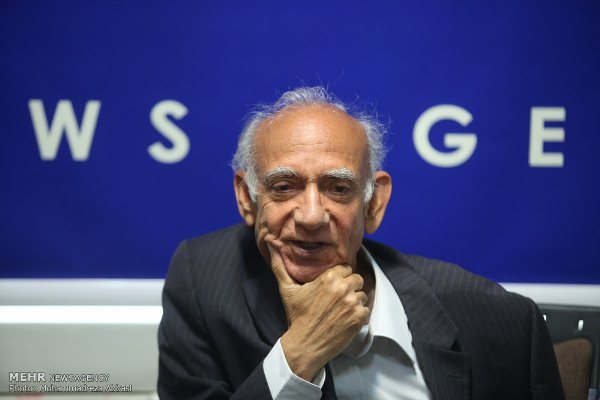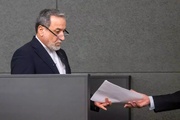After the capture of Kabul by the Taliban, the group’s rise to power and the end of the 20-year US war in Afghanistan, there are now questions about the future of Afghanistan and the region, the government structure to be formed by the Taliban, the group's ideological positions, Afghanistan’s relations with Iran and other regional countries, a resurgence of the country's shattered economy and Iran’s possible role in rebuilding Afghanistan.
In this regard, Mehr News correspondent had an interview with Pir Mohammad Mollazehi, a senior expert and analyst on Afghanistan affairs, which is as follows:
How do you assess the future of Iran and Afghanistan in the wake of the Taliban's rise to power?
The future of Iran and Afghanistan's relations depends on the approach taken by the Taliban, whether it seeks a monopoly of power or whether it will share power with other ethnicities and political groups by forming an inclusive government.
In either case, Iran's position will be different; If the Taliban move towards the distribution of power and involve other ethnic groups, especially Shias and Turkic-speaking people, in the structure of government, its goal will align with what is also favored by Iran; because Iran, too, favors the formation of an inclusive government with a broad social base in Afghanistan. Iran has a lot in common ideologically with the Shias and Hazaras of Afghanistan, as well as with the Tajik people of Afghanistan, and all of these are in Iran's interest.
But if the Taliban seeks a monopoly of power, given that the group's ideology is different from that of Iran and closer to Saudi Arabia, then it seems that the relations between Iran and the Taliban or the government formed by the Taliban will not be much amicable.
Is the statement issued by the Taliban regarding the formation of an inclusive government merely for show to influence the views of the international community, or does the Taliban really intend to change and temper its ideological positions?
Currently, the Taliban have two main needs, and we must assess their position in relation to them; one is a domestic need that seeks to calm the situation and prevent any movement to be formed against them and resist the Taliban's power, and the second one relates to the Taliban’s need for international recognition in order to stay in power.
Therefore, I believe that these two needs have forced the Taliban to take a somewhat more balanced stance and talk about the freedom of all political and social groups and even their participation in the structure of government. However, whether the Taliban will eventually pursue the same policy is a matter of debate.
What role can Iran play in forming an inclusive government in Afghanistan?
Iran can prove very helpful because it has a long border with Afghanistan and on the other hand, the Taliban is also counting on Iran. Given that both China and Russia, as well as Iran, support the Taliban in some way, the country can play a role in the formation of an inclusive government in Afghanistan, provided that there is a consensus on this issue among Iranian key players.
How do you assess the long-term relations between the Taliban and Saudi Arabia, especially the government to be formed by the Taliban in Afghanistan?
I believe that the Taliban will be fully aligned with Saudi Arabia. Although, Qatar has played the biggest role in this, and it was the Qatari dollars that persuaded the Afghan commanders against resisting. On the other hand, there is a rivalry between Qatar and Saudi Arabia.
However, the Taliban are ideologically close to Saudi Arabia, and as such, one cannot say that there will be strained relations between the two in the future.
Do you think the Taliban are willing to temper their ideological positions due to economic needs?
No, I do not think that the ideological positions of the Taliban will ever change. The Taliban look at foreign investment in Afghanistan from a different perspective.
In my opinion, the Chinese are now in a very good position to invest in Afghanistan to solve the country's economic problems, provided that they can make a deal with the Taliban and the West will allow the Chinese to obtain such a concession. We have to wait and see.
Between the US and China, which country do you think has more chances to take over the global hegemony?
In my opinion, the Chinese have a better chance in the long run and the Americans in the short run.
How do you assess the impact of the Taliban on regional relations, including Iran, China, Turkey, Russia and Pakistan?
It seems to me that the true winners in this case have been Turkey and Pakistan, but not Iran. I believe that Turkish companies will play a key role in rebuilding Afghanistan, and Iran will not be able to get involved much.
How do you assess the relations between Moscow and the Taliban?
Russia has its concerns because it does not know what happened during Doha talks between Zalmay Khalilzad, the US envoy to Afghanistan, and Taliban’s Mullah Baradar.
However, I believe that Russia, as well as China, Turkey, Pakistan and Iran, will each play their part according to their own national interests. Therefore, we must wait and see how the developments in Afghanistan will unfold and how each of these countries will fit in with these developments.
Why did the US leave its military equipment in Afghanistan instead of destroying it if it was not possible to transfer it? Can't the Taliban use this equipment against the US itself?
In my opinion, a deal has been struck in Doha, because it is not likely that the Taliban would suddenly make a move and the Afghan army would not resist and merely surrender. It seems that part of the dominance over the Pashtuns in Afghanistan has been what was agreed with the US behind the scenes in Doha. Those who ordered the Afghan army not to resist certainly did not do so without a plan, and I am certain there have been some behind-the-scenes issues discussed during the Doha talks.
What is your overall assessment of the current situation in Afghanistan and the Taliban’s rise to power?
My personal impression is that there won’t be any serious change. The Taliban will take a more balanced stance in the early stages to consolidate their position; but in the long run, the ideological aspect of the Taliban will prevail over their political one. Therefore, one cannot expect that the Taliban will not be the same Taliban of 20 years ago.
Interview by: Banafsheh Esmaeili
Translated by: M. Sheykhi
MNA/5297533


























Your Comment